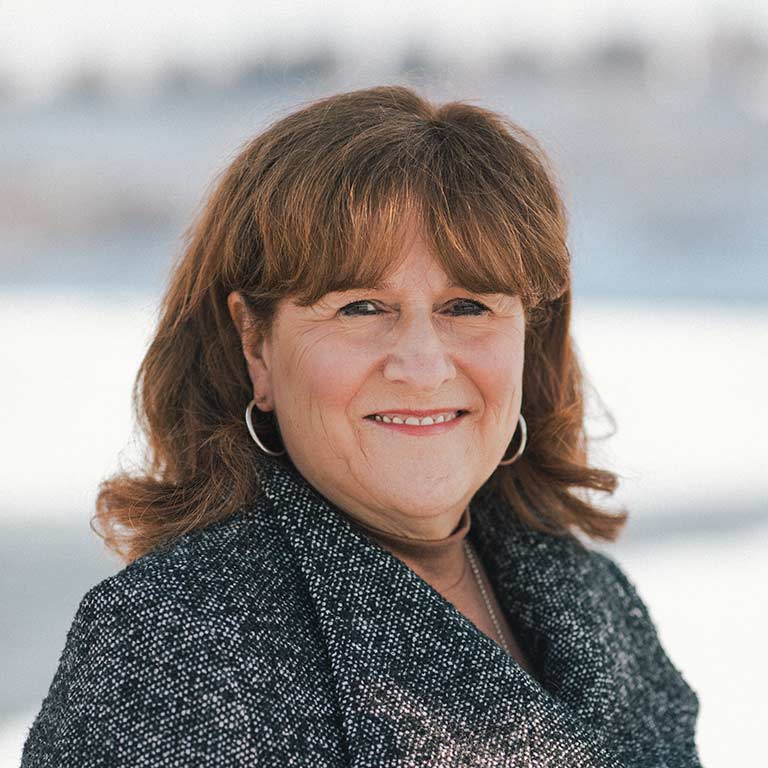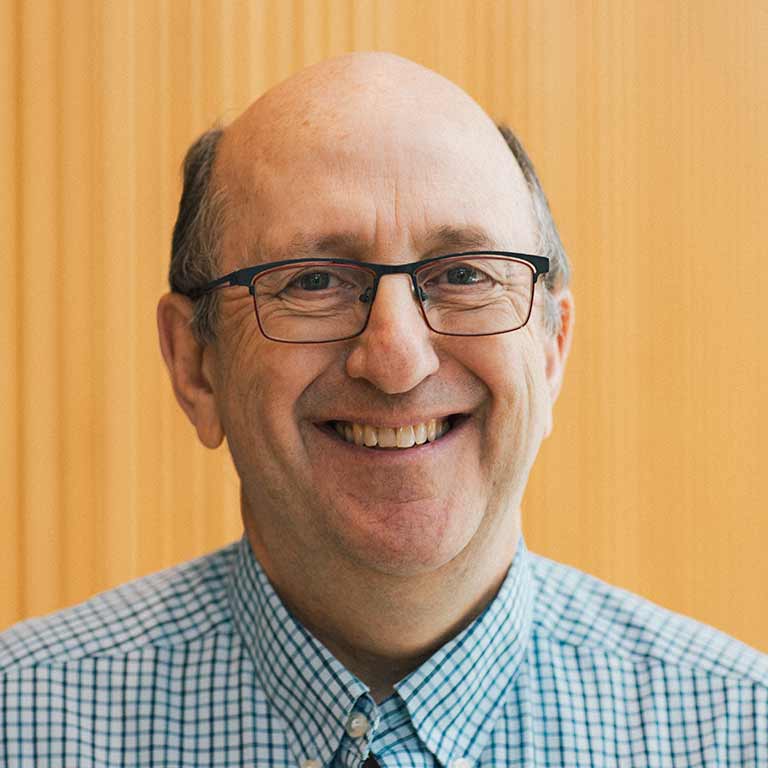4
Four roads less travelled and paved by education
Choosing to make your way into uncharted — and previously unconsidered — territory can be scary. It can also be exciting, invigorating and life changing.
That’s what the following four people did, with support from Mount Royal University. The once-common path of enrolling in post-secondary after high school, graduating, getting a job, starting a family and staying the course until retirement is fragmented. People are zigging instead of zagging, living lives that blend previously segmented stages.
“The lines between education, employment and retirement are blurring now and as we consider the future. Both education … and periods of not working … are punctuating the employment years,” ATB Financial’s Chief Economist Todd Hirsch wrote in The Owl, the economics and research team’s daily newsletter. Hirsch received an Honorary Bachelor of Arts — Policy Studies from Mount Royal in 2017.
“Workers move more fluidly in and out of the workforce, either for education or for reasons related to joblessness, family or personal preference,” he says.
These four individuals have navigated their forks in the road with curiosity and courage, spontaneity and intent. Forging a new path isn’t easy, but it’s set them on a course for a new and different kind of success.

1
Weaving through traffic
Despite working her way into a management position after a decade in banking, Famida Ahmad wasn’t feeling it. So she did a 180-degree turn and enrolled in Mount Royal’s Bachelor of Computer Information Systems (BCIS) program.
Earlier in her career, after completing a Bachelor of Science, Ahmad sadly realized the field wasn’t for her. So, she got a job as a teller. The plan was never to make a career of it, but the years went by and she was still at the bank.
“I wasn’t satisfied,” Ahmad says. “I was looking for more opportunities, for change and for more of a challenge.”

Famida Ahmad
“You have to take opportunities as they come and try different things. Something that you think would not be right for you may end up being the thing that you really enjoy.”
She thought about what she enjoyed about her work: interacting with people, problem solving and technology. As the go-to person for computer issues at work, Ahmad had hands-on experience in all three areas. She researched careers and degrees that would work with her strengths and interests. She enrolled in the BCIS, graduating in 2017.
“The program had both the management and the technology sides,” she says. “I wanted to continue working with people in addition to problem solving and using technology in the business world.”
She worked and attended school full-time for the first three years of the program, fitting some classes into extended lunch breaks at the bank and working nights and weekends. The double load was tough, but Ahmad also thrived on her new path.
“The profs were great, the work was great. I was enjoying it so much that I would work for that extra grade. It came so much more naturally this time because I was interested in what I was learning.”
Another turning point came when Ahmad had to quit her position at the bank to take part in her program’s work co-op.
“My husband wasn’t working. The economy was horrible. We had a house and I couldn’t afford to not work,” she remembers. “I was considering taking a year off and putting my degree on hold. But I took a leap of faith and accepted the position at the Alberta Electric System Operator (AESO).”
The gamble paid off. After Ahmad completed her four-month work term, AESO — which manages and operates the provincial power grid — offered her a position covering a leave. And it was flexible enough that she could work while completing her final year of university. When the year-long leave was over, a position came up as a compliance officer in the IT department. Ahmad got the job.
“Things are so good,” says Ahmad, now 38. “I’m in a career that I’m loving. And there are so many opportunities, there is so much I can do with my education.”

2
One step back, two steps forward

Nana Asante
“I am always trying to be mindful of my mental state. If I see patterns or an action that reproduces unhealthy states, I say, ‘OK, maybe I should take a step back.’ ”
Good things come to those who wait … and to those who know when it’s time to change things up. In 2013, Nana Asante was a first-year student focusing on business and economics. This spring, he’ll be graduating with a Bachelor of Arts — English (Honours) and has applied to law and grad schools.
Asante posted an “A” average in his first year at Mount Royal. But then the Calgary native lost motivation, withdrawing halfway through his second year. For the next year-and-a-half, Asante read and wrote as much as he could in addition to working.
“Giving myself that time has allowed me to focus and achieve as well as I have,” Asante says. “Through doing my general education courses, I found that English and political science were my strong suits and interested me the most.”
Newly engaged with his studies, Asante dove back into his academic work. Since returning to Mount Royal, he’s presented at three conferences and had papers accepted for two others. He also expanded his horizons through his honours program in Indigenous literature.
Career-wise, law is Asante’s first choice. His goal is to practice international and human rights law with a global organization such as the United Nations, saying he sees it as a practical way to effect the kind of change he would like to see in the world.
His second choice is a post-graduate degree in political science, which was his minor at Mount Royal. If he goes that route, Asante could see a future as a government policy analyst.
Now in his late 20s, Asante knows the decision to take time off from university was the right one for him. He returned as a student who was invested and engaged in his new course of studies. Asante formed relationships with his professors, something he didn’t prioritize the first time around.
“That has helped me enormously. I did English honours, so I had to do a thesis with a supervisor. I established a really good relationship with them and with others, which helped me get a job at the research office,” Asante says. “Those relationships have benefited my education as a whole. Any questions, anything I need, I can consult my professors. They have helped me stay strong mentally, as well.”
Asante applies his critical thinking skills in his personal life as well as in his academic work.
“I see a few ways to tackle something, rather than saying, ‘I have to stay on this track. This is the way it is.’ That’s where change starts.”

3
Measured steps
A “perfect storm” of circumstances led Sheila Connell to walk away from a 30-year career as a paralegal and take an alternative path that led to her becoming a business owner.
The Calgarian changed law firms in 2009, moving from a small office that felt like family into the role of office manager in a corporate firm. Connell enjoyed building on her skill set, but it just wasn’t the same.
“I lost that customer connection, which is really huge for me. I wanted to move forward and not look back. I thought, ‘Life is too short for this,’ ” Connell says. “I have four children and you make concessions when they’re younger. When they’re older and all gone, you can think, ‘I am going to do what I want to do.’ ”

Sheila Connell
“Follow your dream, but be prepared.”
So she did. Connell pursued an interest in interior decorating at Mount Royal University’s Faculty of Continuing Education. She paired that program with an Entrepreneurship Certificate with the goal of launching her own retail business. Connell opened Shades of Sleep & Accessories Inc. in 2010. The Inglewood store has evolved along with its owner: growing from a focus on custom bedding to showcasing luxurious goods related to a good night’s sleep.
Changing paths wasn’t easy, though. While Connell had the benefit of a spouse who could support the household while she made the transition, she invested time, effort and money into investigating her career switch. Skills such as bookkeeping, human resources and marketing are tools, she says, so she set about stocking a kit tailored to her new career.
“Find out about the work that you will be doing. There is no point switching careers if you don’t like the new one. That’s where the courses at Mount Royal came in,” she says. “You need to do your homework. If I am going to make a career change, what is it going to look like? And try to find a mentor in the field you’re going to be in.”
Part of Connell’s “perfect storm” that sparked her professional shift was making a new friend who was a business owner in Inglewood, a location Connell was interested in for her new venture. It was natural for them to talk shop.
While Connell is all for following your dream, her mantra is to always be prepared. If you’re contemplating opening a small business of your own, that preparation needs to include extra capital to carry you through the start-up and initial opening phase, she advises.
Most people who start their own businesses are between the ages of 20 and 40, she points out. She was in her 50s when she decided to strike out down the path to entrepreneurship.
“But I just knew that I didn’t want it to be 20 years down the road and saying, ‘I wish I had.’ ”
4
Gathering speed along the way

James Bergeron retired in 2010 as vice-president of Lafarge for Western Canada. He was 52. Instead of embarking on a life of leisure, however, Bergeron enrolled in the Grade 10 math course in Academic Upgrading at Mount Royal.
To better understand that deviation from the expected course of retirement, rewind to 2008. Bergeron was helping his daughter with her Grade 10 math. Rather, he was trying to help her.

James Bergeron
“You have to have the confidence that making a choice doesn’t commit you forever. It just commits you to a period of time until you see a different fork and go a different route. I do that a lot.”
“I had no earthly idea what she was doing. I couldn’t help her in any way, shape or form. I decided that when I retired, I’d come back and go to school and learn about math,” Bergeron recalls.
So he did. Bergeron has now taken almost all the math courses that Mount Royal offers, as well as every computer science course. He even took one math course with his daughter, who had graduated from McGill University by that point. (She needed another course to strengthen her skills going into a master’s degree.)
From his home in Eastern Canada, Bergeron started in strategic planning at LaFarge Canada. Over the course of his career, many paths presented themselves, including one he initially balked at. The president asked Bergeron if he’d be interested in being the first director of distribution within Lafarge’s North America operations.
Bergeron said he had no interest in “trucks or trains or ships. I don’t know how any of them work and I don’t care.” But the president pushed. “You’ve got a good mind for puzzles and we need someone to help us figure out how to do this better.”
Seeing how he loves coming up with solutions, Bergeron changed his mind. That fork in the road brought Bergeron and his family to Calgary.
The path he’s currently on has led Bergeron — who holds an MBA — to expand his studies into chemistry, physics and biology (which he squirms even thinking about). He draws on that breadth of learning in his volunteer work at Mount Royal, tutoring students at the Riddell Library and Learning Centre and the Iniskim Centre. He also created the Evelyn Fraser Delaney Math Help Award for students who have completed a second-level math course and who have committed to helping another student with the subject.
“I really enjoy sitting with someone, listening to what they’re trying to do and trying to help them figure it out,” he says.
What keeps Bergeron at Mount Royal? Tutoring, which he has been doing for seven years.
Read more Summit
Building businesses with a conscience: alumni marketplace
Four alumni entrepreneurs have come up with cool ways to help diversify the economy while also incorporating sustainability and a commitment to community into their small-business plans.
READ MORE

